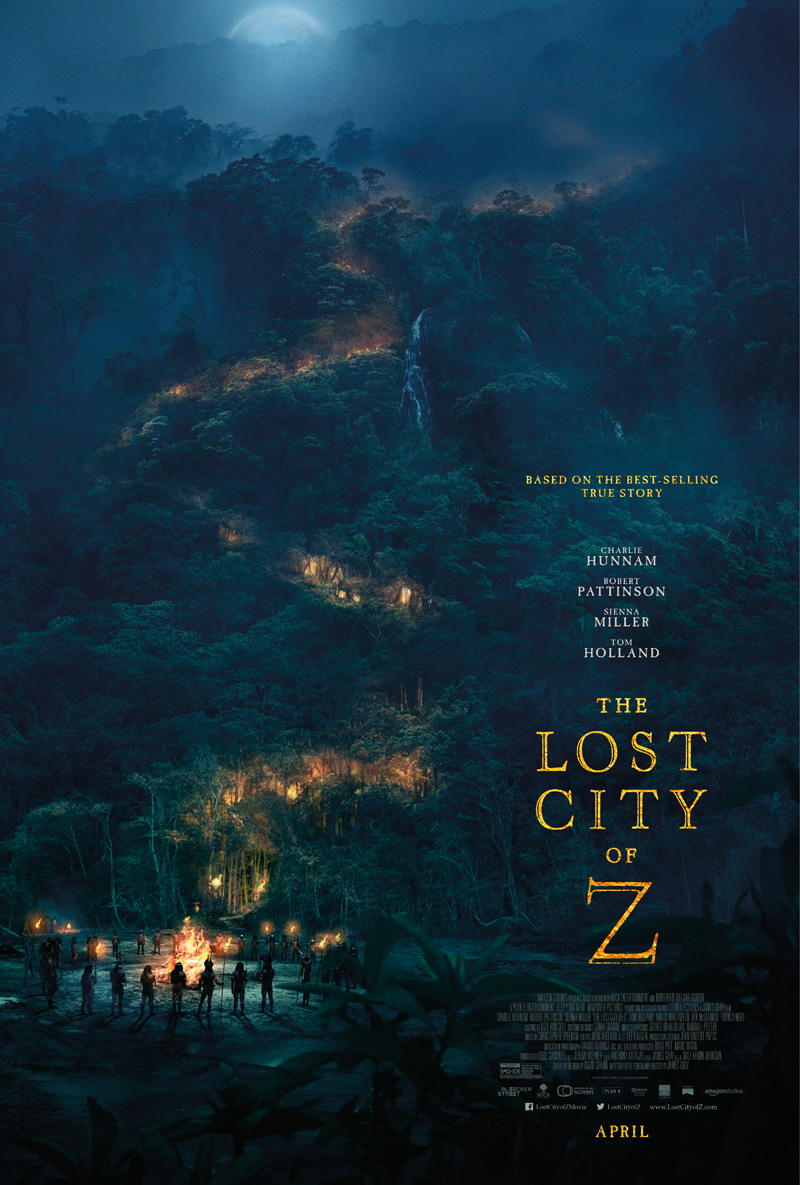Film Review: The Lost City of Z (2017)


I wouldn’t be surprised if audiences are having trouble with James Gray’s, The Lost City of Z. It’s an epic adventure film, but one of an era that may be somewhat misunderstood by contemporary filmgoers. Those seeking a pure action film may find themselves on the disappointed side, but if it’s a quality, enthralling story you’re after, you’ve certainly come to the right place. A big film that spans decades, The Lost City of Z feels like a film that was made decades ago—a notion this critic finds completely refreshing.

Z is much more than a jungle movie. In fact, some of the best scenes take place in stuffy English rooms, full of stuffy English men who huff and puff about all things anthropological and archaeological. Comparisons to Apocalypse Now or Fitzcarraldo are easy to make—and not necessarily off the mark—but those comparisons would be limiting. Perhaps even more fitting might be to compare it to Herzog’s other South American river movie, 1972’s Aguirre, The Wrath of God, but even that isn’t quite on the mark (but closer to it, I’d say). No, Gray has successfully channeled David Lean’s 1962 classic, Lawrence of Arabia (match cuts and all), and I must say, I’m grateful for it.

Taking place between 1905 and 1925, Z has us tag along through numerous treks through Amazon, the politics of the Royal Geographic Society, and the horrors of WWI. Fawcett (Charlie Hunnam, in his best performance to date) is Percy Fawcett, a real-life British explorer who disappeared, along with his son, in the wilds of Brazil in 1925. During his first expedition, he and his team (including an unrecognizable Robert Pattinson) find evidence of an ancient civilization, a culture that possibly pre-dates that of white Europeans. This, of course, is preposterous to the stuffy Englishmen I mentioned earlier and is met with all manner of ridicule. Fawcett, however, is determined to find more evidence of this lost city he has named simply “Z,” sending him back to the Amazon several times in search of proof.

Fawcett is aware of the folly of those who came before him in search of El Dorado, or some other mythical place (even noting that these were most likely stories concocted by natives to use Conquistador’s greed against them, luring them into the jungle to their deaths). He doesn’t seek gold, but knowledge and reverence. His journeys take a toll on his wife (a very no-nonsense and relatable, Sienna Miller) and his kids, who barely know their father due to his long absences. Family duty vs. family honor (and if they are, in fact, one and the same) are themes that come up again and again throughout the film. The journey is sometimes more important than the destination, but there is usually a price to pay for both.

At 140 minutes, it’s a long move, but the scope it covers demands it. Otherwise, it may have come off as rushed, and possibly incoherent. At no point, however, did I feel bored or antsy. Each chapter serves to set up the next, with the ones taking place in England acting as necessary respites between the Amazon adventures.

The jungle is somehow both vast and beautiful, while at the same time, claustrophobic and utterly deadly. Natives are sometimes friendly, sometimes hostile. This sense of unknowing, having no idea what’s around the next bend, is a thrilling experience. Gray gives us this thrill with each turn. In one of my favorite scenes, the explorers are traveling by river when they are suddenly bombarded with arrows from the shore. Instead of running for the hills, they play music. This act disarms them and effectively ingratiates them to the newly discovered tribe. It’s a marvelous exercise in tension, action, humanity, and catharsis.

Z is an old-school epic, one made out of its time. I found it a welcome change of pace. It has more in common with films of decades past, but there’s nothing wrong with that. It’s beautiful in its melancholia and imagery, with a story that’s likely to haunt you for some time.
